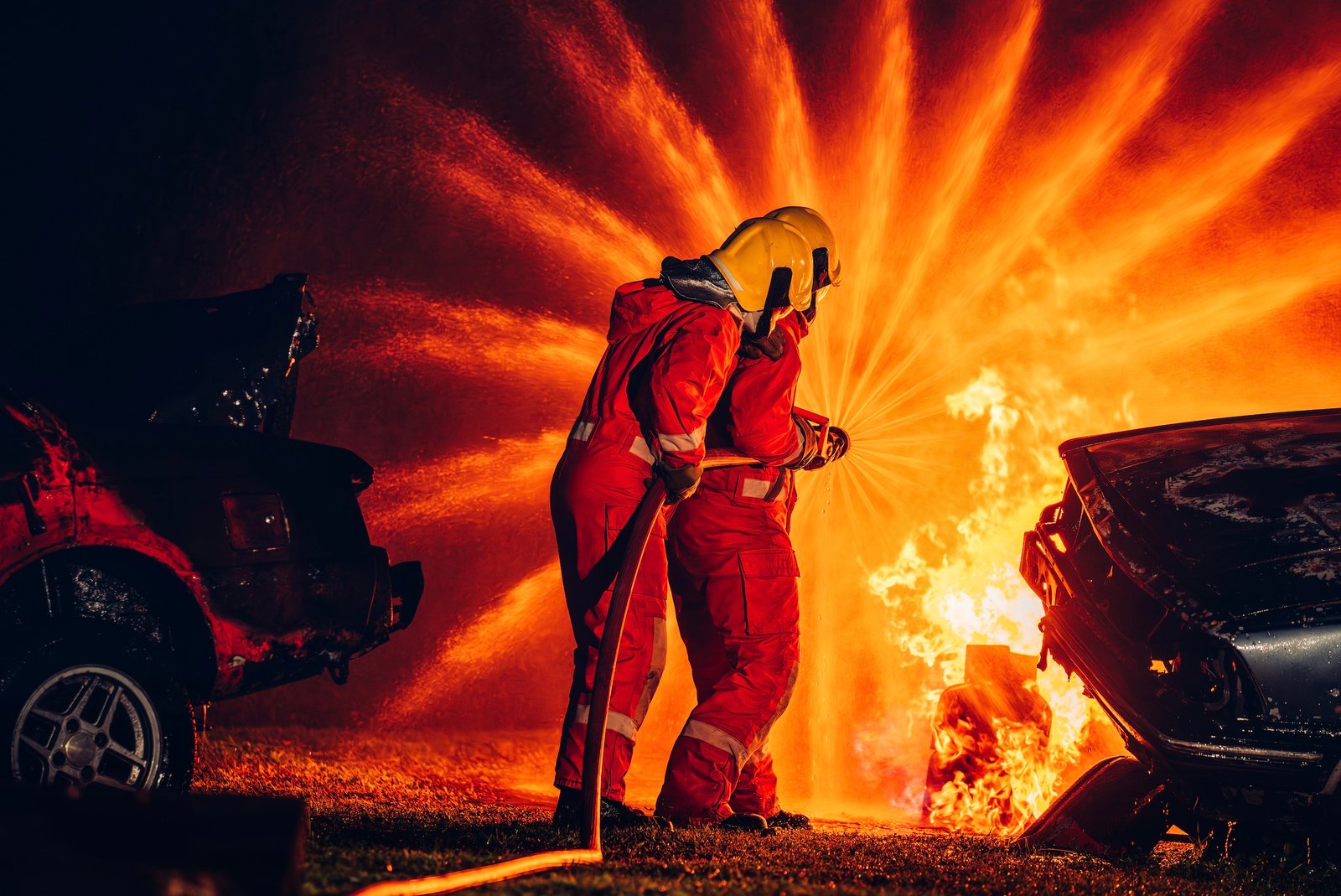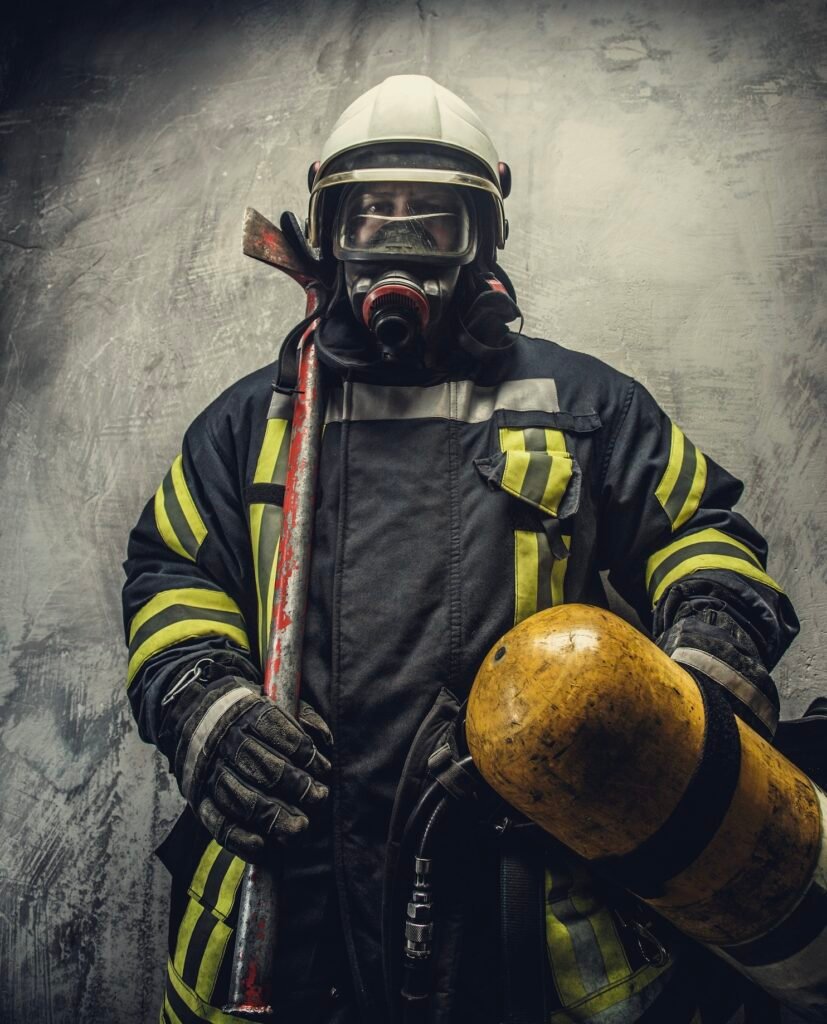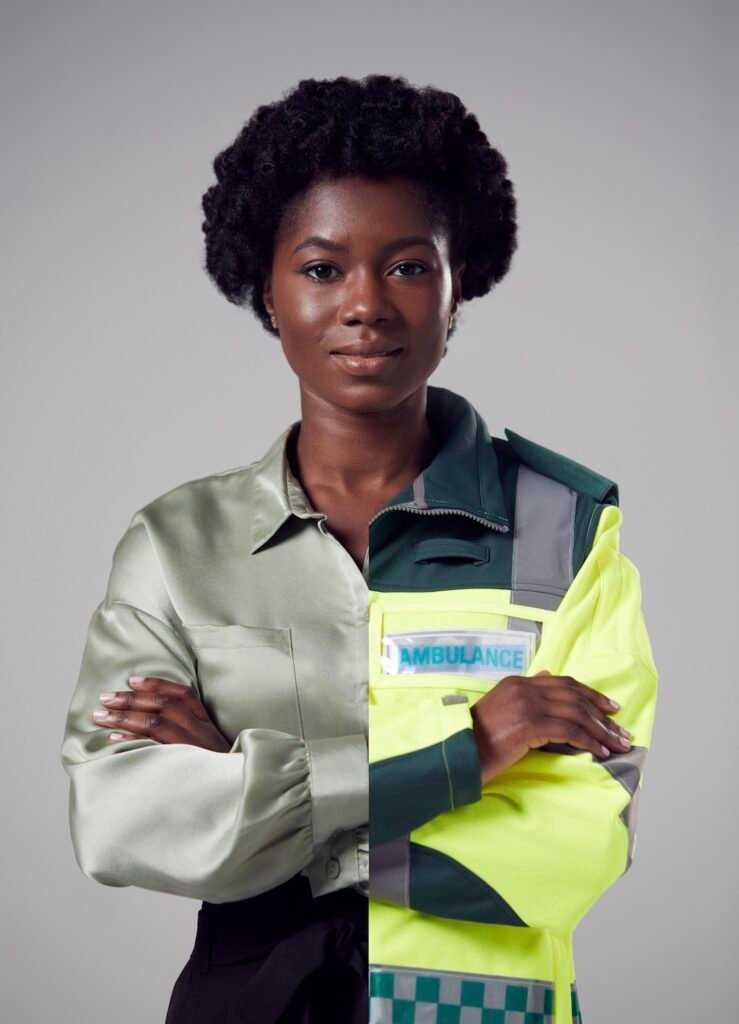
How to Become a Firefighter in South Africa
Ever wondered what it takes to be a hero in a helmet, battling blazes and saving lives? Becoming a firefighter in South Africa is a noble pursuit, demanding courage, dedication, and a robust physical condition. It’s not just about dousing flames; it’s about making a significant impact on your community, being part of a tight-knit team, and facing challenges head-on. In this guide, we’ll walk you through the journey of transforming your aspiration into reality. From the qualifications needed to the physical demands, we’ve got you covered. Let’s light up the path to your dream career with all the essential info, served up in an easy-to-digest format.
Article Highlights:
- Understanding the Role: Dive deep into the day-to-day responsibilities and the impactful role of firefighters.
- Qualifications Needed: Highlighting the educational and certification requirements to kick-start your career.
- Physical and Medical Requirements: Unpacking the fitness and health standards expected from candidates.
- The Application Process: A step-by-step guide on how to apply, including key deadlines and documentation.
- Training Programs: Explore the rigorous training regimen designed to prepare you for every aspect of firefighting.
- Career Advancement: Opportunities for growth and advancement in the firefighting profession.
- Challenges and Rewards: A realistic look at the challenges faced by firefighters and the rewards that come with the job.
- Contributing to Community Safety: How firefighters play a crucial role in enhancing community safety and resilience.
In the following sections, we’ll explore each of these highlights in detail, ensuring you have a comprehensive understanding of what it takes to embark on this courageous career path. Whether you’re drawn to the adrenaline-pumping action or motivated by a desire to serve, becoming a firefighter in South Africa is a commitment to excellence, bravery, and community service. Let’s get started on your journey to becoming a hero in your community.
Quick Step-by-step Process of Becoming a Firefighter in SA:
Here’s a simplified, step-by-step guide to becoming a firefighter in South Africa, making it straightforward and easy to follow:
- Meet the Basic Requirements:
- Be at least 18 years old.
- Have a Senior Certificate (Matric).
- Possess a valid Code B driving license.
- Obtain Necessary Certifications:
- Complete Firefighter 1 and Firefighter 2 training courses, accredited by the South African Qualifications Authority (SAQA).
- Pass Physical and Medical Evaluations:
- Undergo a physical fitness test to demonstrate strength, endurance, and agility.
- Pass a medical examination to ensure you meet the health standards required for firefighting.
- Submit Your Application:
- Apply to the fire department or service you’re interested in joining.
- Include your CV, certified copies of your qualifications, and your driving license.
- Undergo Training:
- If accepted, participate in the firefighter training program provided by the fire department. This includes practical and theoretical training in firefighting techniques, emergency medical care, and fire prevention.
- Start Your Career:
- Upon successful completion of your training, you’ll be ready to start working as a firefighter.
- Consider Further Advancement:
- Look into additional training and education for career advancement opportunities in the future.
--- Advert ---
Understanding the Role of a Firefighter
Firefighters in South Africa play a pivotal role in community safety, responding not only to fires but also to emergencies like accidents, natural disasters, and even medical emergencies. The day-to-day responsibilities of a firefighter extend beyond extinguishing blazes; they include conducting fire safety inspections, participating in community education on fire prevention, and maintaining equipment readiness. Firefighters must be adept at teamwork, possess strong problem-solving skills, and be ready for physical challenges. Their impactful role in saving lives and properties makes them invaluable to the community they serve.

Requirements to Become a Firefighter in SA
Qualifications Needed to Become a Firefighter
To embark on a career as a firefighter in South Africa, certain educational and certification requirements must be met. A Senior Certificate (Matric) is the foundational requirement. Prospective firefighters should also complete a Firefighter 1 and Firefighter 2 certification, accredited by the South African Qualifications Authority (SAQA). These certifications cover firefighting techniques, fire prevention, and emergency medical care. Additionally, a valid Code B driving license is often required, and for those looking to further specialize, courses in hazardous materials and emergency medical response can be beneficial.
If you’re looking to pursue Firefighting training programs in South Africa, here are some reputable places you might consider:
- Strat Training: Offers three types of firefighting training courses, including Basic Fire Fighting (Fire Marshal) and more. For detailed information, visit their website: Strat Training Fire Fighting Courses.
- EMCARE: Known for a variety of Health & Safety training courses including Firefighting. They have branches in Polokwane, Durban, and Cape Town among others. Check out their offerings at: EMCARE Fire Fighting Training.
- Absolute Health Services: Offers the popular South African Fire Equipment Servicing Technician – SAQCC 1475 course, a recognized, accredited, theoretical and practical course. For more details, visit: Absolute Health Services Fire Fighting Courses.
- Fire Protection Association of South Africa: Their Fire College is a professional training center aimed at reducing life and property losses in the Southern African region. They offer comprehensive training for fire protection. Learn more at: About the Fire College.
These links will direct you to their official websites where you can find more information on the courses offered, entry requirements, and how to apply.
Physical and Medical Requirements
The physical and medical standards for firefighters are stringent, designed to ensure that candidates can handle the rigorous demands of the job. Applicants must pass a comprehensive physical fitness test, which may include strength, endurance, and agility assessments. Medical examinations are also conducted to ensure candidates have no underlying conditions that could impair their ability to perform. Good visual and auditory acuity are critical, and overall physical health must be excellent to withstand the challenges of firefighting.
For becoming a firefighter in South Africa, the physical and medical requirements generally include:
- Good Physical Fitness: Ability to pass rigorous physical fitness tests assessing strength, endurance, and agility.
- Medical Clearance: Must be medically fit, with a comprehensive medical examination to screen for any conditions that could impair firefighting abilities.
- Visual and Auditory Acuity: Good vision and hearing are essential, often with specific standards that must be met without or with corrective measures.
- Healthy Weight and Body Composition: Maintaining a healthy weight and body composition that supports the physical demands of firefighting.
- Drug-Free: Must pass drug screening tests.
- Psychological Evaluation: Sometimes required to ensure candidates can handle the mental and emotional stress of the job.
Meeting these requirements is crucial for ensuring that candidates can safely and effectively perform the duties of a firefighter.
The Application Process
Applying to become a firefighter in South Africa involves several key steps. Initially, candidates must ensure they meet all the qualifications and physical requirements. The next step is to submit an application to the fire department or service you wish to join, often available on their official websites or local government portals. This application should include your CV, certified copies of qualifications, and a valid driving license. Following this, candidates may be invited to undertake a physical fitness assessment and a medical examination. Successful candidates will then proceed to interviews and, if selected, will receive an offer to join a firefighter training program. It’s important to be mindful of application deadlines and specific documentation required by each fire department.
Training Programs
The training programs for aspiring firefighters in South Africa are both rigorous and comprehensive, designed to equip candidates with the skills needed for every aspect of firefighting. These programs typically last between 3 to 6 months and cover a wide range of topics, including fire suppression techniques, emergency medical care, hazardous materials handling, and fire prevention education. Practical training is a significant component, with simulations and live fire exercises to prepare recruits for real-life scenarios. Additionally, courses on physical fitness and teamwork ensure candidates are ready for the demands of the job. Completing this training is a critical step towards certification and employment as a firefighter.
Career Advancement

In the firefighting profession, opportunities for career advancement are plentiful for those who are committed and excel in their roles. Advancing from a firefighter to roles such as fire officer, fire inspector, or fire chief involves additional training and certifications. Specializations in areas like paramedic services, fire investigation, and hazardous materials can also lead to career growth. Continuing education is key, with many firefighters pursuing further studies in fire engineering or public administration to enhance their leadership and technical skills. Being proactive about professional development can open up numerous pathways to advancement within the firefighting community.
Challenges and Rewards
The life of a firefighter is filled with both challenges and rewards. Firefighters face physical dangers, long hours, and the emotional toll of dealing with emergencies and loss. However, the rewards are equally significant. Saving lives and properties, making a positive impact on the community, and the camaraderie shared among firefighters are unparalleled benefits. The satisfaction of knowing you’re contributing to the safety and well-being of others is a powerful motivator and one of the greatest rewards of this profession.
Contributing to Community Safety
Firefighters play a crucial role in enhancing community safety and resilience. Beyond responding to fires, they are involved in fire prevention education, teaching the community about fire risks and safety practices. Firefighters also conduct safety inspections to ensure buildings comply with fire codes and regulations, reducing the risk of fire outbreaks. Through emergency medical services and disaster response, they provide critical support in times of crisis. Their contribution to community safety is immeasurable, making firefighters indispensable to the health and resilience of the communities they serve.
FAQs
Where can I study firefighter in South Africa?
Strat Training, EMCARE, Absolute Health Services, and the Fire Protection Association of South Africa are reputable institutions offering firefighter training.
To become a firefighter in South Africa, you can enroll in firefighter training programs at institutions such as Strat Training, EMCARE, Absolute Health Services, and the Fire Protection Association of South Africa. These organizations provide comprehensive training courses that cover essential firefighting skills, safety protocols, and emergency medical care.
What is required to become a firefighter in South Africa?
Senior Certificate (Matric), Firefighting certifications (Firefighter 1 and 2), physical and medical fitness, and a valid driving license are required.
Becoming a firefighter in South Africa requires a Senior Certificate (Matric), successful completion of Firefighting certifications (Firefighter 1 and 2), passing a physical fitness test, obtaining medical clearance, and holding a valid Code B driving license. These prerequisites ensure candidates have the necessary education, skills, and physical capabilities for the job.
What do firefighters earn in South Africa?
Firefighters in South Africa earn an average salary of R183,253 per year, but this can vary based on experience and location.
The salary for firefighters in South Africa can vary, but on average, they earn around R183,253 per year. Factors influencing salary include the individual’s experience, the specific responsibilities of their role, and their location within South Africa.
Is fire fighting in demand in South Africa?
Yes, firefighting is in demand due to the essential nature of the service and the need for specialized skills in emergency situations.
Firefighting services are crucial and consistently in demand in South Africa, largely due to the essential role firefighters play in emergency response, community safety, and disaster management. Their specialized skills in handling fires and emergencies ensure there’s a steady need for trained professionals.
How long is the fire fighting course?
The duration of firefighter training courses in South Africa typically ranges from 3 to 6 months, depending on the program’s intensity and scope.
Firefighter training programs in South Africa can vary in length but generally last 3 to 6 months. The duration depends on the specific course and institution, covering both theoretical knowledge and practical skills in firefighting, emergency medical care, and fire safety.
Which course is best for firefighter?
The Firefighter 1 and Firefighter 2 certifications are considered essential for aspiring firefighters.
The best course for aspiring firefighters in South Africa typically includes the Firefighter 1 and Firefighter 2 certifications. These courses provide foundational and advanced firefighting skills, fire prevention knowledge, and basic emergency medical care, essential for a career in firefighting.
How much does it cost to study fire fighter in South Africa?
The cost can range from R5,000 to R20,000, varying by institution and course specifics.
Studying to become a firefighter in South Africa can vary in cost, generally ranging from R5,000 to R20,000. The price depends on the institution, the length of the course, and whether it includes advanced certifications or specialties.
How do I apply to become a firefighter?
Submit an application to a fire department or service, including your CV, certified qualifications, and a valid driving license.
To apply to become a firefighter, you should look for openings at local or city fire departments and submit an application. This application typically requires a CV, certified copies of your qualifications (such as your Matric certificate and any firefighting certifications), and a copy of your valid driving license. Some departments may also require a medical and physical fitness test as part of the application process.
Which college can I study fire fighter?
Strat Training, EMCARE, Absolute Health Services, and the Fire Protection Association of South Africa offer firefighter courses.
Colleges and institutions like Strat Training, EMCARE, Absolute Health Services, and the Fire Protection Association of South Africa are recognized for their firefighter training programs in South Africa. These organizations offer courses ranging from basic to advanced levels, catering to different aspects of firefighting and emergency response.
How much is basic fire fighting course?
The cost for a basic firefighting course can range from R1,000 to R5,000, depending on the institution.
A basic firefighting course in South Africa, which covers fundamental firefighting skills and fire safety knowledge, can cost between R1,000 and R5,000. The exact price varies based on the training provider and the course’s duration and content.
Do I need matric to become a firefighter?
Yes, a Senior Certificate (Matric) is typically required to become a firefighter in South Africa.
Having a Senior Certificate (Matric) is usually a prerequisite for enrolling in firefighter training programs in South Africa. It serves as a foundational educational requirement for aspiring firefighters, ensuring they possess basic knowledge and skills before undergoing specialized training.
What is the APS score for firefighters?
There isn’t a specific APS score required for firefighters, as focus is more on physical, medical, and certification requirements.
For firefighting positions in South Africa, the emphasis is typically on physical fitness, medical clearance, and the completion of required firefighting certifications rather than on an Academic Performance Score (APS). However, having a Matric certificate is essential, and educational qualifications may play a role in certain application processes or training programs.
Wrapping it up
Becoming a firefighter in South Africa is a noble and rewarding career path that demands a blend of physical fitness, medical health, academic qualifications, and specialized training. Aspiring firefighters must navigate through various steps, from obtaining essential certifications like Firefighter 1 and Firefighter 2 to passing rigorous physical and medical evaluations. Institutions such as Strat Training, EMCARE, Absolute Health Services, and the Fire Protection Association of South Africa offer comprehensive training programs that equip candidates with the necessary skills and knowledge. The cost of these programs varies, reflecting the depth and breadth of the training provided. The journey to becoming a firefighter also involves meeting basic educational requirements, with a Senior Certificate (Matric) often being a prerequisite. Despite the challenges and demands of the profession, firefighting offers significant opportunities for personal and professional growth, as well as the chance to make a meaningful impact on community safety and well-being.
The demand for firefighters in South Africa underscores the critical role they play in emergency response and disaster management, making this career both vital and in demand. The rewards of a firefighting career are many, from the satisfaction of saving lives and protecting property to the camaraderie shared among team members. For those looking to embark on this challenging yet fulfilling path, understanding the requirements, costs, and training options is the first step. With dedication, resilience, and the right training, aspiring firefighters can achieve their goals, advancing through the ranks while contributing significantly to their communities. As South Africa continues to recognize and support the essential services provided by firefighters, the profession remains a compelling and admirable choice for those committed to making a difference.
